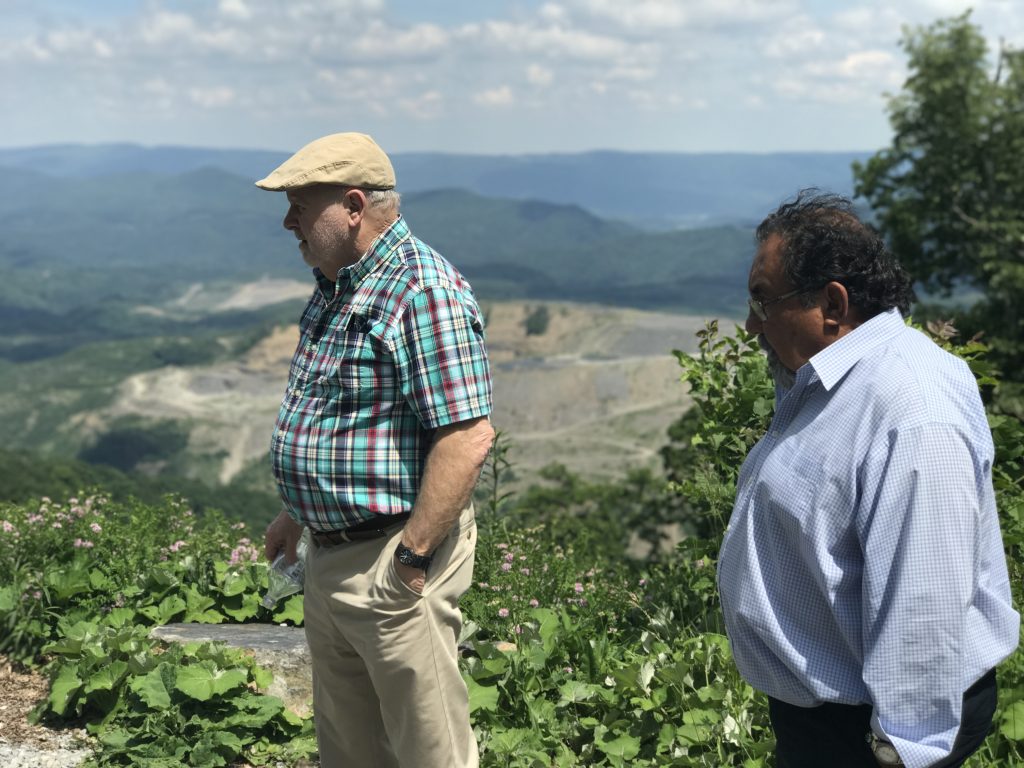Cleaning Up Coal Ash
For well over a century, power plants across the country have burned coal to generate electricity. And for just as long, leftover coal ash has been dumped in open, unlined pits near the power plant, usually located on a river or lake. Every year, U.S. power plants produce 130 million tons of coal ash, which is the second largest waste stream in the country after municipal garbage.
Coal ash concentrates the toxic heavy metals found in coal, including arsenic, mercury, lead and selenium. Stored in unlined, wet impoundments, coal ash has been leaking these toxics into our groundwater and surface waters for years. Sometimes these impoundments collapse — with disastrous results.
Yet government regulations for coal ash management are either non-existent or sparse, and there is little enforcement of the regulations that do exist. In North Carolina, this lack of oversight — and the complicity between state regulators, elected officials and Duke Energy — came to a boiling point in February 2014 when one of Duke’s coal ash impoundments spilled 39 million tons of ash into the Dan River.
Citizens living near North Carolina’s 33 coal ash impoundments — all of which have leaked — have fought for transparency from Duke and the state, and for cleanup of the pollution that threatens their property value, health and family. Their actions forced this issue into the headlines of news networks and to the forefront of environmental justice conversations in the United States.
Appalachian Voices stood with these communities as we worked for years to compel Duke Energy and the N.C. Department of Environmental Quality to excavate coal ash from all the North Carolina sites and dispose of it either in lined, dry landfills, away from waterways, or by recycling it for concrete or other uses, provided it’s done in a manner that protects public health and the environment.
On Jan. 2, 2020, North Carolina announced a historic settlement with one of the state’s most powerful corporations and polluters, Duke Energy. The settlement requires Duke to move nearly 80 million tons of toxic coal ash at six of its power plants to properly lined landfills onsite or recycle it.

Learn information about specific coal ash impoundments in the South, including health threats and safety ratings:
Additional Resources
Fact sheets, videos, links to academic research, and more
Sign Up to Act
Help us protect the health of our communities and waterways.
Latest News
Honoring Rep. Grijalva
Appalachian Voices staff is deeply saddened by the passing of U.S. Rep. Raúl Grijalva. Throughout his more than 20 years of congressional service, the Arizona representative was committed to not only the communities in his district, but disadvantaged communities across the country, including Appalachians and coal mining communities.
Green Jobs, Healthy Communities: A Conversation With SEEED’s Stan Johnson and JD Jackson
SEEED, a nonprofit operating in Knoxville, Tenn., provides “pathways out of poverty for young adults through career readiness training, environmental education and community engagement.” The following is a Q&A with two members of the organization’s leadership team.
Overwhelming opposition to MVP Southgate submitted to federal agency
On March 11, the Federal Energy Regulatory Commission closed an intervention period in the federal docket for the proposed Southgate pipeline project. Mountain Valley Pipeline, LLC, the developer of the Southgate pipeline, is seeking approval to dramatically alter its original 2018 design, changing the route and increasing the pipe diameter and capacity for the project. Although community members asked for more time for review, only a 21-day intervention period was offered.
Residents fight for Kentucky water
SB 89 would strip protections for Kentucky’s groundwater, headwater ephemeral streams and many wetlands, increasing pollution risks, raising water treatment costs and exacerbating flood risks for communities across the commonwealth.
In a win for customers, Virginia State Corporation Commission rejects utility proposals and sets higher energy efficiency standards
Earlier this month, the Virginia State Corporation Commission published two orders that will require Dominion Energy and Appalachian Power Company to maintain and expand their energy efficiency programs from 2026 to 2028.
Community Strong project development meetings coming to Dante, Dungannon, Pennington Gap, Pound and Clinchco
Appalachian Voices will be hosting the third listening sessions for the Community Strong initiative in Clinchco, Dante, Dungannon, Pennington Gap and Pound, Virginia, in March and April. Community members are invited to join.











